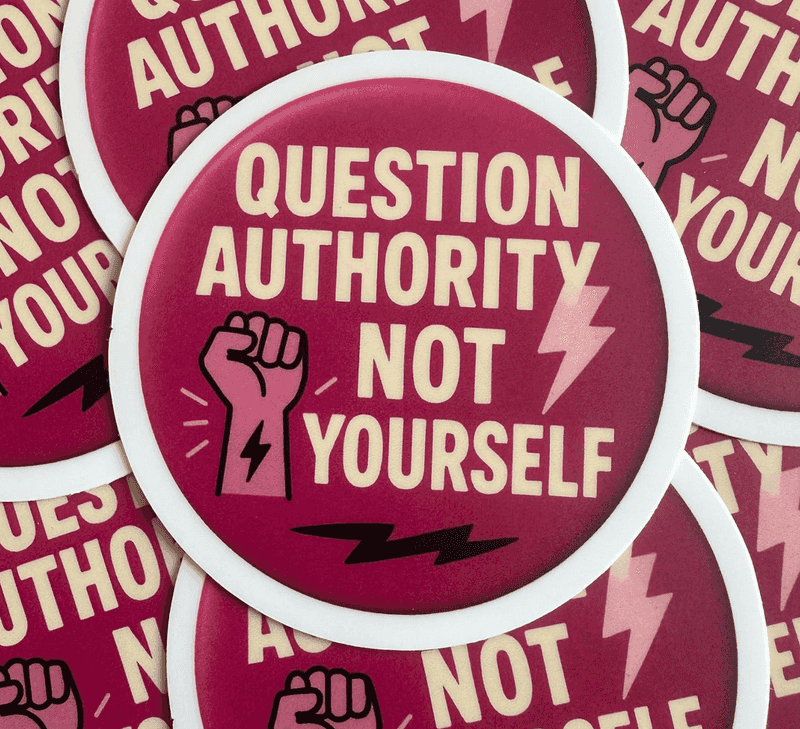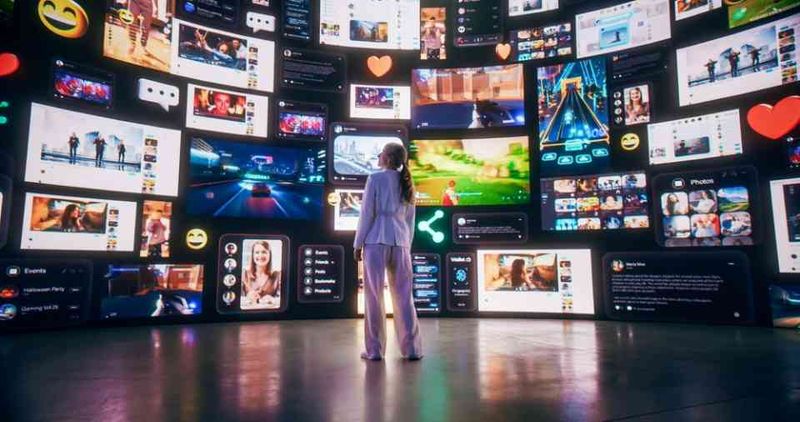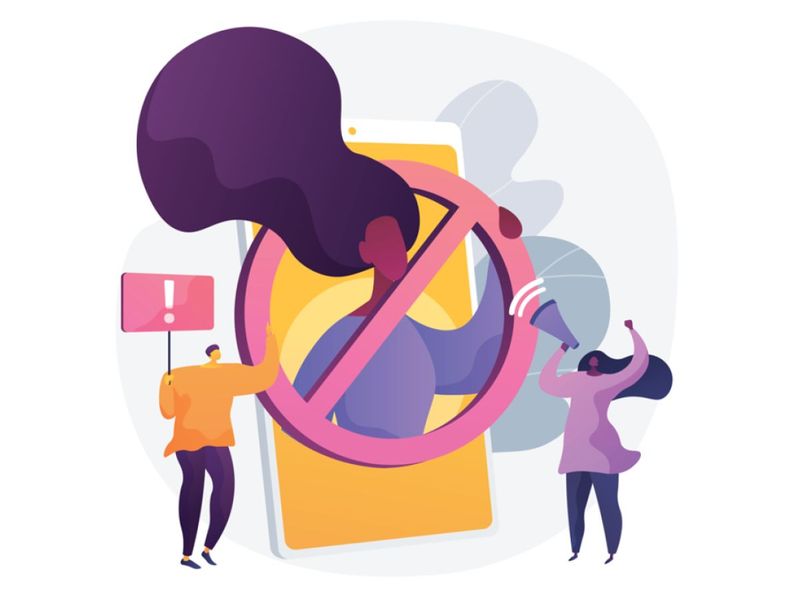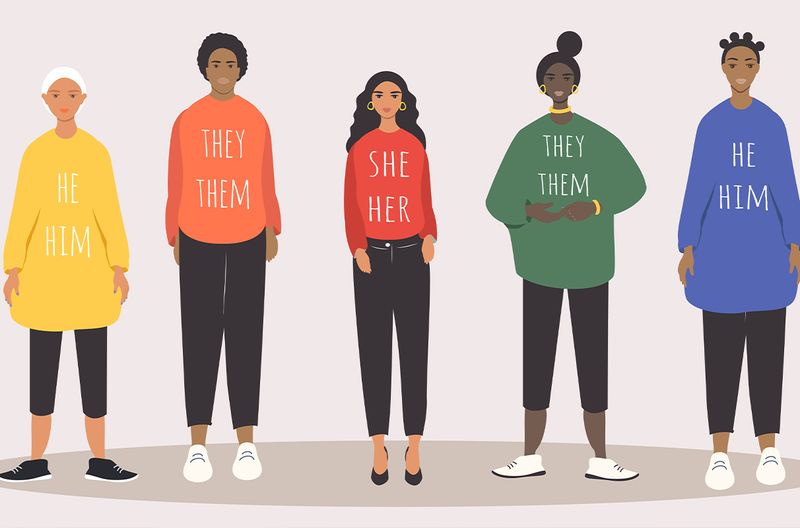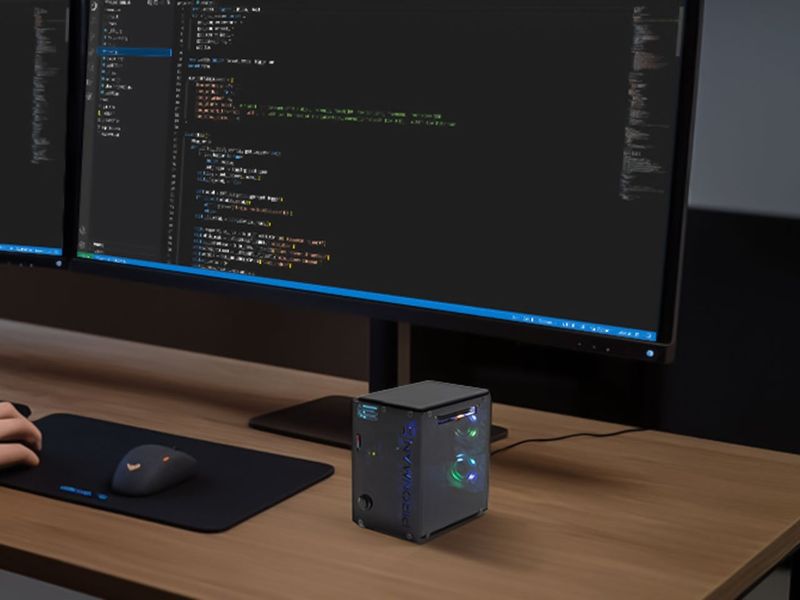We love our Boomers—but let’s be honest, some of their complaints just don’t hold up in 2025. As the world changes faster than ever, some gripes from yesteryear feel more like punchlines than problems. Whether it’s bafflement over new tech, nostalgia for things nobody misses, or hot takes on avocado toast, these Boomer complaints are more eye-roll than insight in today’s world.
1. “Nobody wants to work anymore.”
The narrative of laziness is outdated. The truth is, younger generations are redefining work. They refuse to be underpaid or overworked. With freelancing, remote work, and startup culture, traditional jobs aren’t the only path. Flexibility, mental health, and fair pay matter more now. People are working smarter, not harder, challenging the old 9-to-5 grind. Aren’t we all seeking balance between work and life? It’s not that they don’t want to work; they want to live, too. Boomers may find it confusing, but change is inevitable.
2. “In my day, we respected authority.”
Questioning authority isn’t rebellion; it’s growth. Boomers often reminisce about respect, but blind loyalty is dangerous. Today, questioning norms drives progress. It’s about holding power accountable. After all, authority isn’t always right. In 2025, critical thinking is encouraged. Young people challenge the status quo for a reason. Look at history—change begins with questions. Respect is earned, not demanded. So, maybe questioning isn’t a crime; it’s a necessity. A world where everyone’s voice matters is what we strive for. Authority needs checks and balances.
3. “Music today has no soul.”
Every generation claims the next one’s music lacks soul. Yet, today’s artists are breaking barriers and topping charts worldwide. Music in 2025 is diverse, blending genres and cultures. Tech has opened new doors for creativity. Whether it’s electronic beats, soulful ballads, or fusion genres, music is more vibrant than ever. Isn’t it time we embrace evolution? The soul of music lies in its ability to connect, inspire, and move us. Critics may disagree, but the global embrace speaks volumes. Artists are the voice of the era.
4. “Why does everything need to be online?”
Isn’t convenience a virtue? In 2025, online services are not just a trend but a norm. From banking to education, everything is a click away. Boomers often miss the days of paper and pen. But why resist efficiency? It’s not just about saving trees but saving time. Checks clearing instantly, access to global information, and digital connections are the future. We live in a world where borders are blurred by digital innovation. It’s not just convenience; it’s progress. Online is where life happens now.
5. “People don’t talk face-to-face anymore.”
Human connection transcends physical presence. Boomers often yearn for face-to-face talks, forgetting that screens bridge distances. Video calls, texts, and social media are the new norms in 2025. Isn’t it amazing to connect globally with a click? Screens don’t build barriers; they dissolve them. Conversations happen through pixels, yet emotions remain real. We talk, laugh, share, and grow—just differently. The world seems smaller, connected by digital threads. It’s not about replacing face-to-face; it’s about redefining it. Technology isn’t a barrier but a bridge.
6. “No one writes in cursive anymore.”
Cursive writing may seem like a lost art, but communication thrives in 2025. Boomers often mourn its decline, yet digital literacy is the new penmanship. Typing and coding are today’s life skills. Isn’t progress about adapting to change? The essence of communication isn’t lost; it’s evolving. While cursive fades, digital fluency shines. Words still hold power, regardless of form. It’s not about forgetting the past but embracing the future. The beauty of language persists, just transformed. In a world of screens, expression finds new avenues.
7. “Participation trophies ruined a generation.”
Were participation trophies really the issue? Boomers often blame them for entitlement, yet they forget who bought them. The aim was encouragement, not complacency. In 2025, success is redefined. Resilience, empathy, and collaboration matter more. Isn’t upbringing more influential than trophies? The emphasis on participation fosters inclusivity and confidence. Critiquing a generation for what they received is ironic. Maybe adults need introspection, too. The world today values effort over trophies. Participation is life’s first lesson. It’s not about the award but the journey.
8. “They don’t teach life skills in school.”
School curricula have evolved. Boomers often lament what isn’t taught, missing what is. In 2025, schools focus on coding, financial literacy, and mental health. Aren’t these essential skills? Education mirrors society’s needs. Life skills aren’t just taxes and checkbooks. They’re resilience, adaptability, and empathy. Schools now prepare students for a complex world. Change is part of growth. Criticizing without observing isn’t fair. The next generation is equipped for challenges. We’re raising thinkers, not just doers. Education isn’t static; it’s dynamic, evolving with time.
9. “This generation is too sensitive.”
Sensitivity isn’t weakness; it’s awareness. Boomers often view it as fragility, yet empathy drives change. In 2025, understanding and inclusivity matter. Aren’t we striving for a kinder world? Sensitivity fuels connection, breaking barriers of prejudice. It’s about respecting differences, listening actively, and speaking thoughtfully. Strength lies in vulnerability. Critiques of oversensitivity miss the bigger picture. This generation values feelings, creating safer spaces. The world needs more understanding, not division. Empathy isn’t a flaw; it’s a strength. A sensitive heart can change the world.
10. “Why do you need a therapist? Just deal with it.”
Therapy isn’t taboo; it’s self-care. Boomers often dismiss it, advocating stoicism. But unresolved emotions aren’t healthy. In 2025, mental health is prioritized. Isn’t it time for healing over hiding? Therapy offers understanding, growth, and peace. Bottling emotions isn’t strength; it’s denial. Seeking help is courage. Critiques of therapy overlook its benefits. Everyone deserves support. The stigma fades as awareness rises. It’s about thriving, not just surviving. Healing is a journey, not a destination. Therapy is a tool for a healthier mind. Embrace it, don’t shun it.
11. “They want everything handed to them.”
Entitlement is a misconception. Boomers often label youth as demanding, missing their hustle. In 2025, millennials and Gen Z juggle debt, careers, and creativity. Aren’t they striving for stability? The economy’s challenges breed resilience. Hard work isn’t always visible. Critiques come without context. Young people adapt, innovate, and persevere. Handouts aren’t the norm; struggle is. The real story is one of perseverance. They’re not asking for everything; they’re building something. It’s a tale of determination, not entitlement. The next generation’s journey is unique, marked by tenacity.
12. “Nobody uses the phone to actually call.”
Texting is considerate, not lazy. Boomers often lament missed calls, overlooking convenience. In 2025, communication evolves. Isn’t it polite to text at convenience? Calls interrupt; texts pause. The world respects time, choosing texts for flexibility. Critiques miss the shift in etiquette. Conversations aren’t lost, just transformed. Texts offer clarity, thoughtfulness, and space. It’s a balance of immediacy and reflection. The phone call isn’t extinct; it’s selective. Communication adapts to pace. Texts connect without intrusion. It’s about respecting time and boundaries. The art of conversation remains; it just evolves.
13. “Why would you want to work from home?”
Home isn’t just a refuge; it’s a workspace. Boomers often question remote work, missing its benefits. In 2025, flexibility is key. Isn’t commuting a relic? Working from home offers balance, productivity, and comfort. Critics overlook autonomy’s value. The world shifts from traditional offices. Remote work isn’t isolation; it’s freedom. The future embraces change. Home becomes a hub of innovation. It’s about choice, not constraint. Work-life balance thrives. Questions of remote work miss a bigger picture. It’s about reimagining workspaces, not resisting them. The office is where you make it.
14. “They’re canceling everything!”
Accountability isn’t cancellation; it’s growth. Boomers often see cancel culture as harsh, overlooking its roots. In 2025, actions have consequences. Isn’t it fair to demand responsibility? Cancel culture isn’t about silencing; it’s about awareness. Learning from mistakes shapes society. Critiques miss the dialogue. It’s about justice, not just judgment. The world evolves through lessons. Accountability fosters better behavior. It’s not about erasure but reflection. Criticism of cancel culture needs nuance. It’s about understanding, not punishment. The conversation is complex, yet vital. Growth comes from accountability. It’s society’s mirror, not its muzzle.
15. “Back in my day, we didn’t need all this tech.”
Technology isn’t indulgence; it’s integration. Boomers often reminisce about simpler times, ignoring tech’s role. In 2025, innovation is ubiquitous. Isn’t it about enhancing life? Tech streamlines, connects, and empowers. Critics overlook its benefits. The world thrives on technological advances. It’s not about excess but efficiency. Gadgets aren’t distractions; they’re tools. The future embraces innovation. Life evolves with tech, not despite it. Questions of necessity miss progress. It’s about embracing the digital era, not resisting it. Technology is woven into daily life, enhancing experiences. The past is cherished, but the future beckons.
16. “What’s with all these pronouns?”
Pronouns aren’t confusion; they’re respect. Boomers often struggle with changing norms, overlooking empathy. In 2025, identity is acknowledged. Isn’t recognition a form of respect? Pronouns validate existence. Critics miss inclusivity’s significance. The world embraces diversity. Language evolves with understanding. It’s about seeing, not just hearing. Identity matters; pronouns express it. Criticism overlooks growth. It’s about embracing differences, not resisting them. The conversation on pronouns is about inclusion. It’s about recognizing humanity. The world flourishes when everyone is seen. Respect isn’t just words; it’s action. The language of respect is universal.
17. “Tattoos make you unemployable.”
Tattoos aren’t barriers; they’re expressions. Boomers often view them as unprofessional, missing the trend. In 2025, ink is mainstream. Isn’t it time to see beyond stereotypes? Tattoos tell stories, not limit careers. Critics overlook talent. Employers value skills over appearance. The world embraces individuality. It’s not about hiding ink, but showcasing talent. The corporate world evolves. Tattoos are conversation starters, not enders. The future is inked. Questions of employability miss the bigger picture. It’s about redefining professionalism, not resisting expression. Tattoos are art, worn with pride. The workforce is diverse, and so is its canvas.
18. “Kids today are always on their phones.”
Remember when phone booths were a thing? Well, today’s phone is a personal assistant, work tool, and social hub. Boomers often lament the glued-to-the-screen generation, but these devices are lifelines. From Zoom meetings to ordering groceries, phones do it all. Imagine carrying a map, camera, and dictionary. Now, it’s just one device. So, a little screen time is not so bad. It’s more than just TikTok dances; it’s a digital revolution. Are we missing the forest for the trees here? The world is at our fingertips, literally.
19. “Streaming? What happened to good ol’ TV?”
Streaming isn’t a fad; it’s a revolution. Boomers often lament TV’s decline, ignoring choice. In 2025, content is on demand. Isn’t it about control? Streaming offers variety, flexibility, and personalization. Critics overlook convenience. The world shifts from schedules to freedom. It’s not about losing TV, but gaining options. The future of entertainment is streaming. Questions of tradition miss progress. It’s about embracing change, not resisting it. Entertainment evolves with viewers’ needs. It’s about choice, not constraint. The screen is yours; the experience is unique. The past was linear, but the future is dynamic.
20. “You’re always on your gadgets!”
Gadgets aren’t distractions; they’re enhancements. Boomers often critique constant use, missing their benefits. In 2025, gadgets streamline life. Isn’t it about efficiency? Technology connects, informs, and entertains. Critics overlook integration. The world thrives on gadgets. It’s not about addiction, but adaptation. Gadgets are tools, not chains. The future embraces tech. It’s about balance, not excess. Questions of usage miss the bigger picture. It’s about harnessing technology, not resisting it. Gadgets are companions in daily life. The past had tools; the future has gadgets. Technology evolves, enhancing experiences. Life is enriched, not disrupted.
21. “Why can’t you just buy a house?”
Housing isn’t simple; it’s complex. Boomers often question youth’s struggles, missing economic shifts. In 2025, prices soar, wages stagnate. Isn’t it about affordability? The housing market is a challenge. Critics overlook barriers. The world changes; so does real estate. It’s not about laziness, but feasibility. Young people strive for stability. The future isn’t unreachable. Questions of homeownership miss reality. It’s about navigating challenges, not avoiding them. The dream is alive, though different. Housing is a journey, not a given. The past had opportunities; the future has hurdles. Economics evolve, shaping aspirations. Home isn’t just a place; it’s a pursuit.
22. “Why do you need to order food from your phone?”
Food delivery isn’t laziness; it’s convenience. Boomers often lament the lost art of cooking, ignoring time. In 2025, life is fast-paced. Isn’t it about balancing demands? Ordering in offers relief. Critics overlook convenience. The world embraces digital dining. It’s not about avoiding cooking, but managing time. The future of food is flexible. Questions of tradition miss modernity. It’s about embracing convenience, not resisting it. Ordering food fits a busy lifestyle. The kitchen evolves with tech. Meals are crafted with care, even delivered. It’s about nourishing body and schedule. Life is busy, and convenience is key.
23. “I don’t get memes.”
Memes aren’t trivial; they’re culture. Boomers often struggle with humor’s evolution, missing context. In 2025, memes are language. Isn’t it about shared laughter? Memes capture moments, express emotions. Critics overlook creativity. The world communicates through humor. It’s not about exclusion, but connection. Memes evolve with society. Questions of understanding miss enjoyment. It’s about embracing humor, not resisting it. Memes reflect trends, thoughts, and times. The digital age finds joy in pixels. Laughter is universal, even online. Memes unite generations through humor. The past had jokes; the future has memes. Humor evolves, transcending boundaries. Laughter finds new forms.


